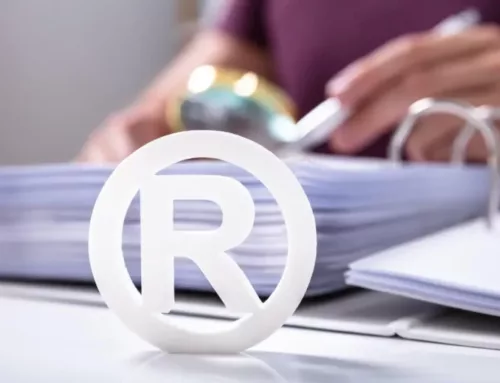According to the United States Patent and Trademark Office (USPTO), trademark renewal scams are on the rise. Countless companies with names that appear to be government entities are fooling consumers each year. The USPTO provides a list of companies to be wary of, and many of them sound very legitimate.
At War IP Law PLLC, our team of Washington, D.C. intellectual property attorneys assist clients with the trademark and patent process. Whether you would like to obtain a patent or trademark, have general questions about intellectual property (IP), or have a dispute concerning intellectual property, the experienced trademark attorneys at War IP Law, PLLC are here to help. To learn more, contact our office today by calling (202) 800-3754.
What Are Trademark Renewal Scams?
Individuals who have intellectual property protected by the law must comply with numerous USPTO requirements. Many of these requirements involve filing deadlines, one of which involves deadlines concerning registered trademark renewals. Untrustworthy companies have taken advantage of trademark holders by sending misleading and fictitious solicitations regarding mandatory USPTO renewal fees. By paying these companies to “handle” the renewal fee process, trademark holders are paying for “processing” fees that they may not be required to pay.
A recent example involves solicitations sent by the “Patent and Trademark Office,” but those solicitations did not come from the U.S. Patent and Trademark Office. Rather, this company’s name is intended to fool trademark holders who fear their trademarks may be canceled if fees are not paid immediately. The United States Department of Justice (DOJ) indicates that a copy of one mailing fraudulently states an individual’s trademark is “pending cancellation.” At War IP Law, PLLC we are familiar with the numerous trademark renewal scams that have generated income in the millions.
Steps for Avoiding Trademark Renewal Scams
There are several steps that an intellectual property holder can take to attempt to avoid trademark renewal scams.
Step 1 – Understand the USPTO Renewal Process
Registered trademark holders should have a strong understanding of the USPTO requirements concerning trademark renewals. Such an understanding will help to identify fraudulent trademark renewal notices. Trademark renewals occur (1) between the fifth and sixth years following the date of registration, (2) between the ninth and tenth years following the date of registration, and (3) every ten years going thereafter.
Step 2 – Carefully Review Any Third-Party “Renewal Notices”
Fraudulent trademark renewal scams notoriously present themselves as legitimate mailings from the USPTO or an affiliated government agency. Many mailings fool even the most diligent of trademark holders. As such, scrutinizing every aspect of the solicitation is critical to avoid becoming the victim of a trademark renewal scam. Even the envelope itself can provide clues as to whether a mailing is a legitimate mailing from a government entity or a fraudulent solicitation.
Step 3 – Check the Contact Information for Third-Party Solicitors
Where mail originates is a good indicator of whether mail is a fraudulent trademark renewal solicitation. Many addresses are fictitious, and phone numbers provided may also be fictitious. When calling a provided phone number, many people learn that there is no one on the other end to answer the phone. A failure to establish that the company has a valid address and phone number suggest the company may not be legitimate.
Step 4 – Search the Third-Party Solicitor Online
Some fraudulent trademark renewal notices may provide websites that either do not exist or are no longer active. A Google search of the company may also shed light on whether the USPTO has flagged the company as one that perpetuates trademark renewal scams. Other victims or potential victims of such scams may have already filed complaints. Many websites track complaints concerning mail fraud, and one Google search can yield a wealth of information for registered trademark holders.
Step 5 – Contact the Appropriate Authorities if You Suspect Mail Fraud
Catching fraudulent solicitors before they can rake in millions from unwitting registered trademark holders is the best way to prevent trademark renewal scams in the future. Without notice from trademark holders, the USPTO, DOJ, and federal and state consumer protection agencies will not know what companies are regularly committing mail fraud.
Why You Should Consider Hiring an Experienced Trademark Attorney
With so many companies that have names that are nearly identical to legitimate government agencies, such as the USPTO, victims of trademark renewal scams are losing out on hundreds, and sometimes thousands, of dollars. Although the USPTO provides detailed information about what is required to be a registered trademark holder, any small mistake, such as missing a filing deadline, can lead to the cancellation of the trademark.
Fraudulent solicitors take advantage of trademark holders who are not as well-versed in the laws, rules, and regulations concerning registered trademarks. By reaching out to a Washington, D.C. intellectual property attorney, trademark holders will know what steps they need to take to remain in compliance with all laws, and how to avoid trademark renewal scams.
What Else Can an Intellectual Property Attorney Help With?
In addition to helping clients not fall victim to trademark renewal scams, intellectual property attorneys also assist with disputes or litigation that arise from patent and trademark matters. The protection of one’s intellectual property is paramount to preserving a successful business and not being disadvantaged by another’s illegal use of a registered trademark or patent. The assistance of a legal professional can greatly reduce the amount of work involved in the patent and trademark process.
Contact War IP Law, PLLC Today for Your Patent or Trademark Needs
Trademark renewal scams have taken advantage of far too many trademark and patent holders. Avoid the trademark renewal scams that could cost you hundreds or thousands of dollars. Consider reaching out to War IP Law, PLLC today if you believe you are the victim of a trademark renewal scam or wish to speak with an intellectual property attorney about your specific patent or trademark needs. To schedule an initial consultation, contact our Washington, D.C. intellectual property attorneys by calling (202) 800-3754.






